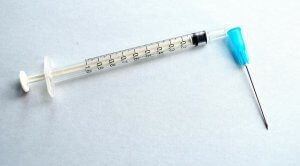

By Nigel Rawson and Olaf Koester, June 3, 2020
The media, together with some governments and academics, have optimistically suggested a COVID-19 vaccine could be available in 12 to 18 months. That’s not impossible. It took just days to sequence the virus and only hours to synthesize its complete RNA genome. But it would be remarkable, 10 to 15 years being the norm for creating a new vaccine.
Whether a vaccine comes quickly or not, the assumption seems to be it will become available in Canada as soon as it can be mass produced. But will it? In July, revisions to the regulations governing the Patented Medicine Prices Review Board (PMPRB) come into force that will radically increase that board’s control of drug and vaccine prices in Canada and could significantly delay access.
Before a vaccine can be authorized for use, its development normally progresses through four main stages: initial discovery, pre-clinical analyses, testing in humans and regulatory review. Many potential candidates may be identified but few make it through to clinical testing and even fewer to actual use.
Under current regulations, once a vaccine’s use is authorized, provinces rely on recommendations from the national advisory committee on immunization when making decisions about publicly funded access. That committee’s members include experts in infectious diseases, immunology, microbiology, public health, and pharmaco-economics. To ensure fair pricing, vaccines are procured in competitive tendering in which the lowest bidder — assuming more than one vaccine is available — is granted a majority share of the contract to supply provinces, usually 60 per cent.
However, vaccines will be subject to the PMPRB’s new regulations, which include the need for a price reduction if sales exceed certain thresholds. Because sales can only be assessed retrospectively, a contract won in tendering to supply a specified number of doses at a specified price could later be overturned. Unless Ottawa guarantees the price or postpones the PMPRB revisions, manufacturers will not know whether a tendered price is compliant with the new regulations before marketing a vaccine.
*** TO READ THE FULL ARTICLE, VISIT THE FINANCIAL POST HERE***




